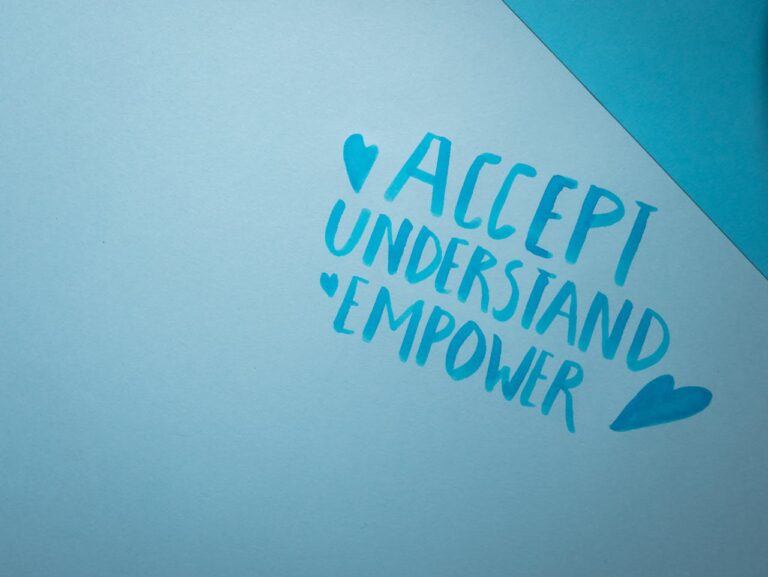Building strong and meaningful relationships, whether personal or professional, requires more than just communication skills or a shared goal. Emotional Intelligence (EI) plays a pivotal role in shaping how individuals connect, empathize, and collaborate. Often referred to as the “soft skill with hard results,” EI empowers people to better understand both themselves and those around them, fostering deeper and more fulfilling connections.
This blog explores the profound impact emotional intelligence can have on relationships, both in the workplace and at home. We’ll discuss its essential components, share practical tips for cultivating EI, and highlight real-life examples of how it brings value to life’s most important interactions.
What Is Emotional Intelligence?
At its core, emotional intelligence is the ability to recognize, understand, and manage your own emotions while also being attuned to the emotional states of others. Coined by Daniel Goleman, the concept of EI is widely considered a vital skill for navigating social complexities, resolving conflicts, and creating harmonious relationships.
EI is not just a buzzword in self-help or professional development—it’s the foundation for successful communication, empathy, and collaboration in all aspects of life.
Why Emotional Intelligence Matters
- Personal Relationships: EI helps couples build trust, resolve conflicts, and create emotional intimacy.
- Professional Relationships: From team dynamics to leadership roles, EI fosters effective communication and collaboration, maximizing productivity.
- Societal Benefits: High EI promotes respect, acceptance, and tolerance, contributing to stronger community bonds.
What Are the Five Components of Emotional Intelligence?
To better understand how EI works in daily interactions, it’s essential to explore its five primary components, as defined by Goleman.
1. Self-Awareness
This is the ability to accurately recognize your emotions and their impact on your thoughts and behaviour. A self-aware individual is in tune with their strengths, weaknesses, and triggers.
Example in action: A manager identifies stress levels rising in a crucial meeting and takes a calming breath before speaking.
2. Self-Regulation
Self-regulation refers to managing your emotions effectively, avoiding impulsive reactions, and adapting to change.
Example in action: Instead of snapping at a partner during a disagreement, you calmly express your concerns and seek a resolution.
3. Motivation
High EI involves intrinsic motivation—being driven by personal growth or shared goals rather than external rewards.
Example in action: A sales professional goes above their targets not just for monetary bonuses but because they find personal fulfilment in problem-solving.
4. Empathy
Empathy is recognizing and understanding the emotions of others, paving the way for compassion and better communication.
Example in action: An HR manager notices an employee’s hesitations during a team meeting and makes time to check in privately.
5. Social Skills
Strong social skills involve building relationships, managing conflicts, and navigating social situations with confidence and tact.
Example in action: A team leader motivates and mediates effectively during project disputes, ensuring team cohesion.
How Emotional Intelligence Impacts Relationships
Whether between friends, colleagues, or loved ones, EI has a profound influence on relationships. Here are some specific ways it strengthens bonds.
1. Improved Communication
High EI allows individuals to express themselves clearly and listen actively, reducing misunderstandings.
2. Trust Building
When people consistently demonstrate empathy and emotional awareness, they establish trust and mutual respect.
3. Conflict Resolution
EI equips individuals with the tools to handle disagreements constructively, leading to win-win outcomes rather than escalations.
4. Team Collaboration
Empathetic leaders and team members foster a collaborative environment where everyone feels heard and valued.
How to Develop Emotional Intelligence
The good news? EI is a skill you can nurture over time with the right approach. Here are some practical strategies to get started.
1. Practice Mindfulness
Tune into your emotions by pausing throughout the day to reflect on how you feel and why.
2. Journaling
Writing about emotional experiences can increase self-awareness and help identify thought patterns or triggers.
3. Seek Feedback
Ask trusted friends, partners, or colleagues for honest feedback about your emotional responses in certain situations.
4. Enhance Listening Skills
Practice active listening by giving your undivided attention to speakers and acknowledging their feelings during interactions.
5. Respond, Don’t React
Pause before reacting to situations that provoke strong emotions, enabling a thoughtful response rather than an impulsive reaction.
6. Cultivate Empathy
Put yourself in others’ shoes to understand their perspectives, especially during disagreements or tense moments.
Applying EI in Different Contexts
While EI is beneficial in every sphere of life, its impact varies depending on the context.
Romantic Relationships
Couples with high EI tend to foster healthier emotional connections. They resolve conflicts through open dialogue rather than shutting down or resorting to blame.
Workplace Dynamics
EI is especially valuable in professional settings, enabling collaborative teamwork, effective leadership, and productive conflict resolution. Managers with high emotional intelligence often inspire loyalty and morale within their teams.
Team Environments
Whether it’s a sports team or a project group in the office, the presence of emotionally intelligent individuals improves communication, decision-making, and overall outcomes.
Real-Life Success Stories
Case Study 1: A Workplace Turnaround
A manufacturing company struggled with high employee turnover and low engagement. After introducing EI workshops for managers, the company saw significant improvements in employee satisfaction and collaboration, reducing turnover by 40%.
Case Study 2: A Couple’s Journey
A couple on the brink of separation attended counselling sessions focused on EI. By learning to identify and regulate their emotions, they revived trust and intimacy in their relationship, strengthening their bond.
Case Study 3: A Career Boost
After improving his EI, a mid-level professional received a promotion to a leadership role. His ability to empathize with colleagues and handle difficult conversations was instrumental in advancing his career.
Strengthen Your Relationships Through Emotional Intelligence
Whether personal or professional, relationships thrive when built on understanding, empathy, and respect—and emotional intelligence is the glue that holds these elements together.
Start by practising mindfulness, managing your own emotions, and empathizing with those around you. Soon, you’ll see the difference it makes in forming deeper connections and fostering mutual trust.
Have you seen emotional intelligence at work in your own life? Share your story in the comments below or start a discussion with your team at work.




















0 Comments